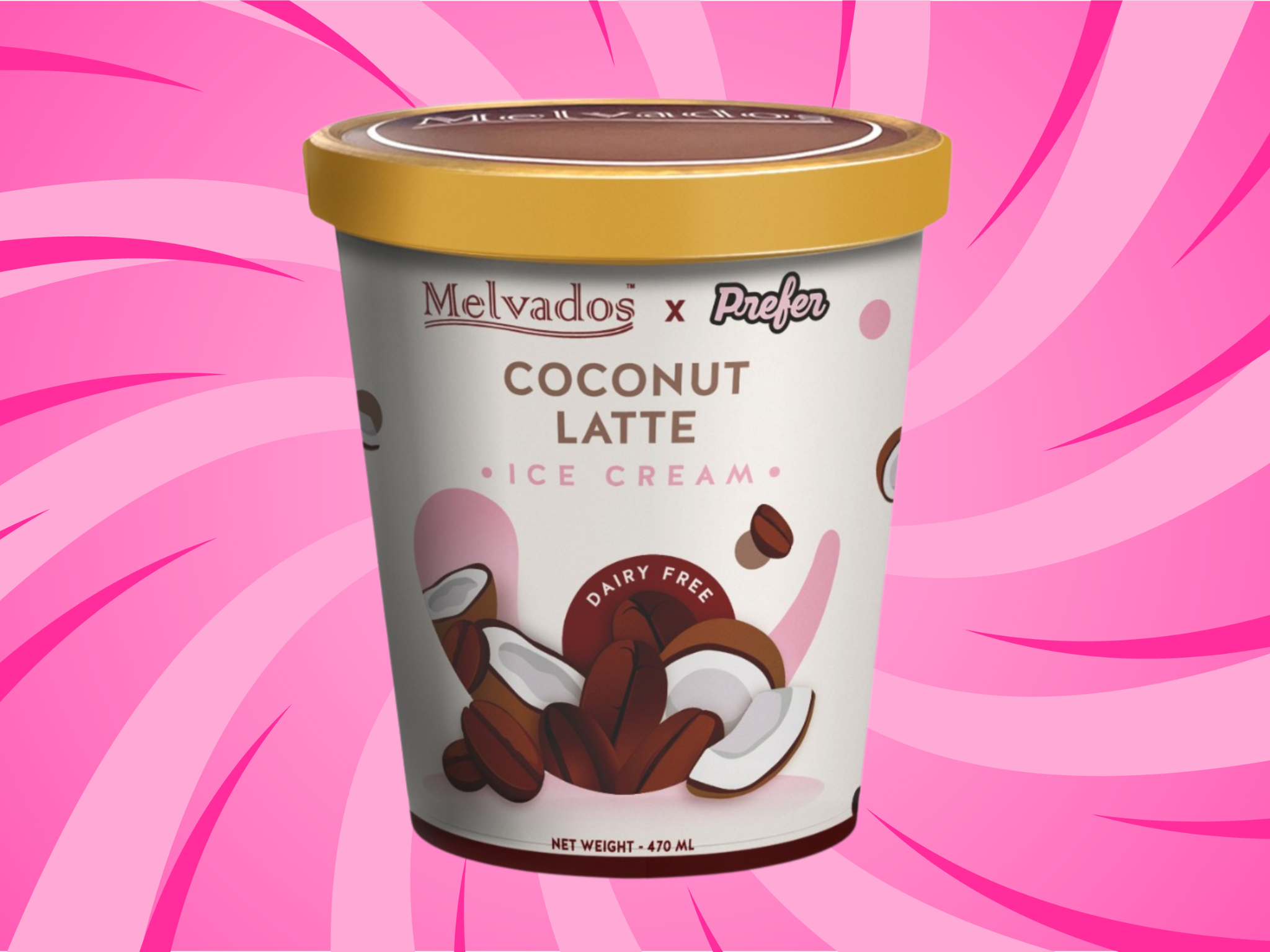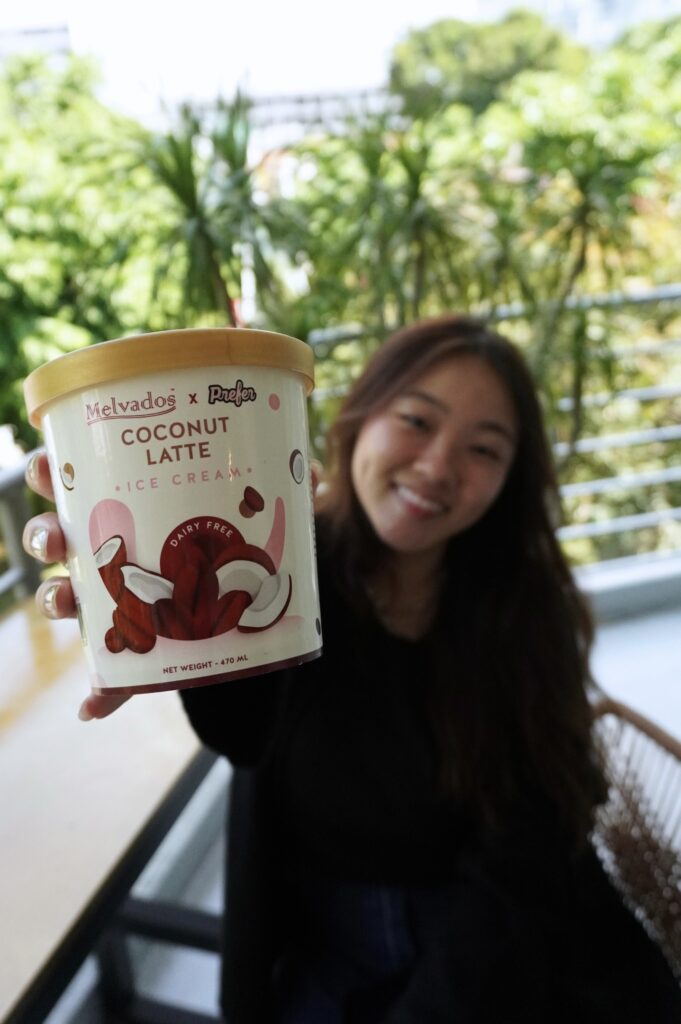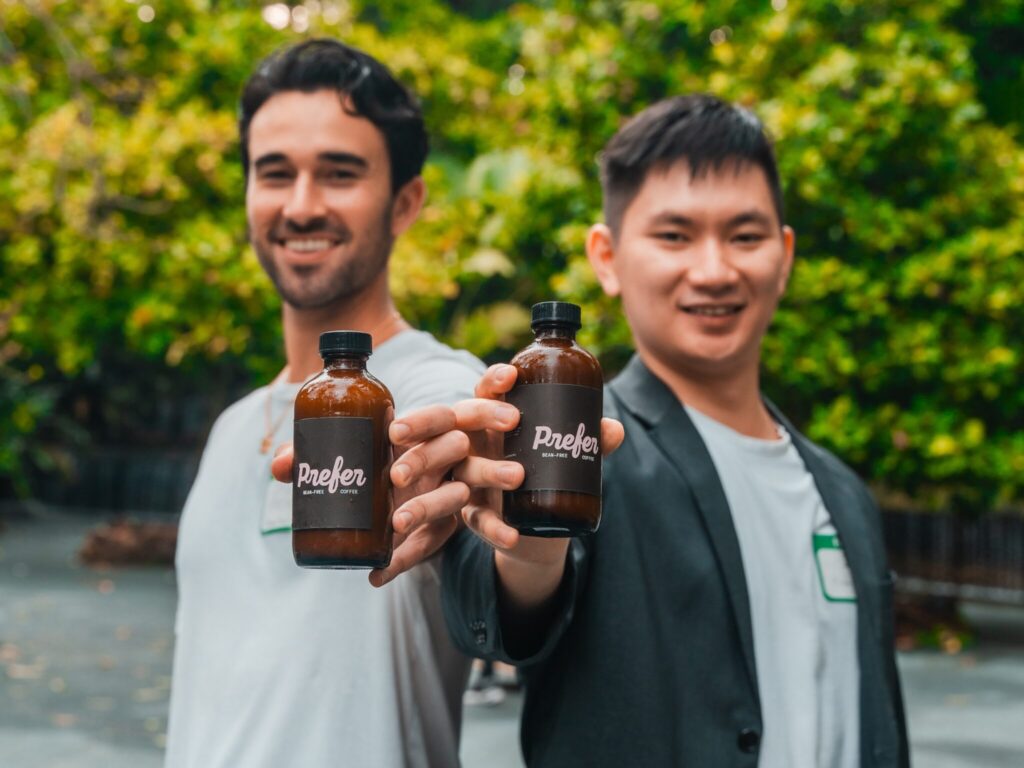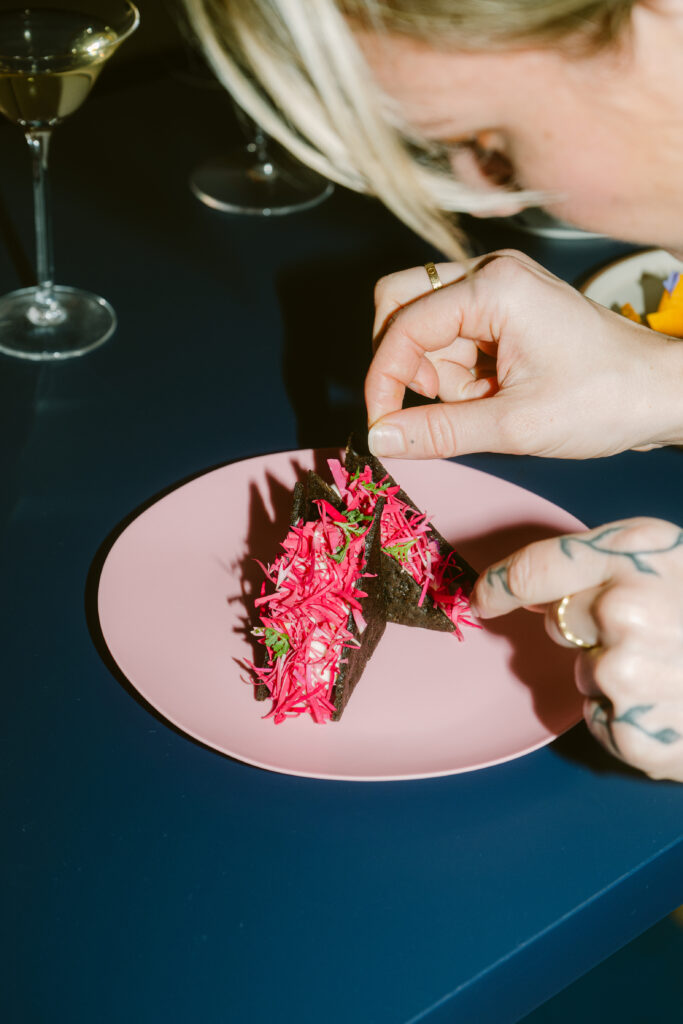
Melvados, a gourmet retailer in Singapore, has launched a co-branded Coconut Latte ice cream without dairy or coffee, using local startup Prefer’s beanless alternative instead.
Singaporeans can get their hands on Asia’s first ice cream featuring beanless coffee at Melvados, the retail arm of local food company Foodedge Gourmet.
The new Coconut Latte ice cream is powered by Prefer’s coffee alternative, made by fermenting food industry byproducts. It’s the first product to highlight its bean-free coffee as a hero ingredient, and marks a milestone for the three-year-old food tech startup.
Melvados was founded in 2004 and has become a household name in Singapore’s gourmet food space, selling everything from ice creams and cakes to ready meals, condiments and snacks. Its co-branded coffee ice cream with Prefer is available on the retailer’s website and its 13 locations across the city-state.
“This is a permanent product with plans to expand the lineup together,” Prefer co-founder and CEO Jake Berber tells Green Queen. “The launch is just the first step in what we both see as a long-term collaboration.”
Prefer talks up hybrid coffee applications

To make its bean-free coffee, Prefer upcycles locally sourced waste ingredients like surplus bread, okara (the leftover pulp from tofu production), and brewers’ spent grain. These are fermented with food-grade microbes, then roasted and ground just like coffee beans, with the process unlocking the same aroma volatiles found in coffee.
Melvados pairs this coffee alternative with coconut milk, sugar, glucose syrup, emulsifiers and stabilisers to give the product a smooth and indulgent mouthfeel. And the best part? At S$11.99 for a 470ml tub, it’s priced in the middle of the company’s lineup, on par with 11 of its other flavours.
“Using our proprietary fermentation platform, we’re able to produce coffee that’s up to two times more affordable for coffee procurement teams. For companies that license our IP and produce it themselves, the ingredient can be up to 10 times more affordable than traditional coffee,” explains Berber. “In both cases, we help customers lower input costs while significantly reducing their carbon footprint. Sustainability is a core value for Melvados, so the alignment was natural.”
Berber doesn’t see Prefer’s alternative as a direct competitor to synthetic coffee flavourings. “It’s a better option for brands looking for an affordable, natural, and sustainable coffee flavour,” he says. “The taste profile is chocolatey, nutty, and is designed to maintain or enhance the flavour of the coffee our partners blend it with.”
The Melvados ice cream isn’t completely devoid of coffee – it blends the bean-free version with conventional instant coffee powder. “The thinking behind this is consistent with what we’ve seen across nearly all of our B2B partners. Prefer is being used as a coffee extender to help reduce cost and carbon footprint, while maintaining or even enhancing the flavour profile of their products,” says Berber.
“Every non-binding offtake agreement we’ve signed so far is structured around hybrid applications. Prefer is designed to work alongside traditional coffee, not to replace it entirely. We expect to see many more hybrid use cases going forward,” he adds.
Indeed, several beanless coffee startups are banking on hybrids. US startup Atomo launched a 50:50 blend last year, combining its upcycled alternative with medium-roast coffee that consumers preferred over Starbucks. Belgium’s Koppie is also working with coffee roasters, which “makes consumer adoption easier and is closer to their own core and capabilities, just like we’re seeing happening in meat and dairy at the moment”, its co-founder told Green Queen last week.
Scale-up plans and a two-pronged business model

The reason all these companies are making coffee alternatives isn’t simply to offer a caffeine-free alternative. Coffee is a carbon-intensive product, generating more emissions per kg than poultry and pig meat combined. Plus, it takes 140 litres of water to produce enough beans for the average cup.
At the same time, climate change has left 60% of coffee species endangered, and the area suitable for cultivating Arabica is shrinking. Crop failures and shortages pushed up arabica prices by 80% last year, with wholesale prices reaching a nearly 50-year high. That has continued in 2025 – this February, coffee futures in New York hit an all-time high of $4.34 per pound.
By its own calculations, Prefer’s product has an estimated carbon footprint 10 times smaller than conventional coffee, no doubt helped by the fact that it’s made from food industry sidestreams.
“Our current lineup includes soluble coffee powder, roasted and ground coffee, concentrates, and a ready-to-drink iced oat latte. As of today, Prefer is stocked in 75 locations across Singapore, and we’re actively expanding into new markets,” says Berber. The brand is on track to cross 100 points of sale by year-end.
“Additionally, we’ve signed $15M in non-binding offtake agreements with B2B partners, including FMCGs, ingredient manufacturers, and coffee chains. We’re scaling up production to meet this demand.”
The firm raised $2M last year to fund a larger-scale pilot facility. “Melvados first reached out to us about a year ago. At the time, we weren’t quite ready, as they required halal certification and the ability to scale production to meet their needs,” reveals Berber. Prefer has since secured the certification and built out the facility.
“Over the next 12 months, we have ambitious goals to scale to a 500-tonne annual capacity through toll manufacturing and partnerships with major food companies across the region,” he adds. “We’re focused on scaling production and rolling out improved product formats for B2B applications. Our business model is becoming clearer, with two primary paths: supplying our ingredients or licensing our IP.”
In January, the startup added beanless chocolate to its portfolio, tackling another high-carbon industry marred by the climate crisis. “Development is progressing well. Our cocoa-free chocolate is built on the same fermentation platform, working with the same customers and following the same commercial model,” says Berber. “We’ll be sharing more publicly this quarter as we approach launch.”

Prefer’s beanless coffee is part of another future-forward ice cream, in the form of a menu item at sustainable eatery Fura. Here, it was paired with an apricot kernel ice cream, raspberry crisps, and marigold in a dish titled the New Age Sando.
It isn’t the only brand to feature its bean-free coffee in an ice cream product. Atomo’s 50/50 blend is paired with Hello! I’m Ugly’s dried apricots and nectarines in a Coffee and Stone Fruit Marmalade flavour by US creamery Salt & Straw.
The post Singaporean Bean-Free Coffee Startup Nabs Major Ice Cream Collab appeared first on Green Queen.
This post was originally published on Green Queen.